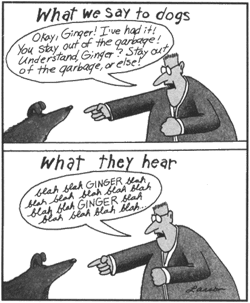I read today that scientists in Japan have demonstrated that paddy birds are able to distinguish between English and Mandarin — well, at least if they’re given an incentive to do so. The researchers didn’t use Japanese because the birds were already used to hearing that language.
This might have implications beyond just the category of “hmm, researchers have been spending a lot of time playing recordings of English and Mandarin Chinese translations of Genji Monogatari (The Tale of Genji) and Wagahai wa Neko de Aru (I Am a Cat)(?!) to birds.”
“Humans are able to distinguish between languages, even ones they don’t know, from the intonation and pronunciation, and it seems that paddy birds have the same ability,” [Keio University professor Shigeru] Watanabe said. “If we study common traits, such as brain structure, this may shed light on the mechanisms of speech recognition.”
According to the article, monkeys, mice, and other mammals have already been shown to have the ability to distinguish between a variety of languages, but this is “the first time that birds have been scientifically found to possess the same ability.”
Mammals distinguishing between languages brings to mind the much-reported efforts of the PRC to push some pandas on Taiwan, which took a turn toward the silly last month when China announced the pandas were being “taught” Taiwanese/Hoklo/Hokkien (or the Minnan dialect [sic], as China likes to refer to it).
“We began our language training with songs because music is a language with no boundaries,” said Li, the 25-year-old keeper who has taken care of No.19 since he was born.
“Girls are more gifted than boys in learning languages,” said Xu, No.16’s keeper, adding that the female cub began to react when they translated her nickname Huangmao Yatou (meaning a chit of girl in Chinese) into Minnan dialect.
“No. 19, however, is too naughty to study,” said Li….
“We immediately started our training program because the two cubs not only need to adapt themselves to the climate and geographical environment of the tropical island, but also to understand the language of their new keepers and visitors,” said Li Desheng, director assistant of the center.
“It’s not an easy task for the pandas as they are already familiar with the Sichuan dialect of their current keepers. They need more time to improve,” said Li Desheng.
China’s strained claims that this isn’t all one big propaganda ploy hit an especially rocky patch about a week ago when the results of a nationwide vote for the pandas’ names were announced. The winning names are Tuántuán and Yuányuán, more examples of reduplication in naming.
The source of these names is the Mandarin word tuányuán (?? / ??), which means “reunify.”
Fat chance Taiwan will accept them now.
Supposedly 100 million people voted in the name-selection process. Maybe it’s true. There are probably at least that many people there who would love a chance to vote for something.
sources:
- Birds able to distinguish between English and Chinese, Mainichi Daily News, February 6, 2006
- Giant pandas for Taiwan learn Minnan dialect, Xinhua, January 19, 2006


Pingback: Global Voices Online » Blog Archive » China, Taiwan: Animal Talk